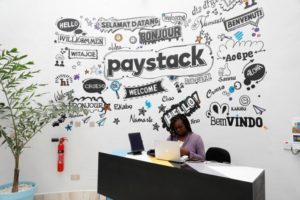Technology is an almost indispensable part of human history. It has however never quite progressed as projected. It almost always manages to beat expectations. The automobile, the television and even the computer all defied expectations. One of the biggest fears about technology was always about job loss. This fear never quite materialised.
Technology always manages to achieve net job gain. Rather than take jobs, technology constantly creates jobs and sometimes even whole new industries thus boosting productivity. After all, is said and done, technology is now an ally, an ally to humans, an ally for human development.
On the flip side, a major challenge for development is poverty. it has been described as easily one of the most prevalent and challenging issues in the world. Beyond the definitions and categorisation, however, the stark reality is that poverty is deprivation. According to the United Nations (UN), “To be poor is to be deprived. And the worst kind of deprivation is financial exclusion.”
It is precisely the desire to curb, curtail or else eliminate financial exclusion that has financial inclusion has become a real big deal in the last decade.
And why not, traditional banks have struggled to reach large segments of the population, both in the urban and rural areas. They have struggled to reach the unbanked. They have struggled to provide services beyond the formal settings.
Banks have been unable to achieve financial inclusion. New ideas are needed. New methods are required. New technologies must come to play.
 Thankfully, it is already beginning to happen. It started with payments. In the first instance card and later gradually online payments until eCommerce started to buzz. Interswitch is a pioneer in this space. Now, it has graduated to the level of firms, technology firms, offering the full range of financial services.
Thankfully, it is already beginning to happen. It started with payments. In the first instance card and later gradually online payments until eCommerce started to buzz. Interswitch is a pioneer in this space. Now, it has graduated to the level of firms, technology firms, offering the full range of financial services.
Today, these firms, technology firms offering financial services are aptly referred to as fintechs. They are at the root of disruption ravaging the financial services sector and are spreading fast. They are working actively to change the narrative. They seem committed to contributing to efforts to close the financial inclusion gap. They are emerging as the real MVP of financial inclusion.
Fintech, according to Investopedia, is used to describe new tech that seeks to improve and automate the delivery and use of financial services.
Fintechs are however not only technology-driven but equally deeply customer-focused, data-powered and service-oriented. They are also currently springing up like mushrooms across the country. This is not surprising as emerging markets, such as Nigeria, are today the hotbeds for producing smart and simple financial solutions at an incredibly rapid rate. This makes sense in a country where so many are currently financially excluded.
In using modern technologies innovatively to enhance the delivery of financial products and services, fintechs find themselves not just providing alternative finance but in direct competition with banks.
This need not be the case. Yes, for a long time, fintechs offered mobile-only propositions because they lacked the legacy infrastructure and associated costs of the banks. Banks, on the other hand, lack the technology and agility of the fintechs.
But now, the future is in collaboration. No, not a competition, but cooperation and collaboration. At this point, banks and fintech must find a way to shake hands and get things done. There are huge opportunities to bridge the gap if the parties will collaborate. They must go together if the goal is true financial inclusion.
The opportunity is huge. Unconfirmed reports indicate that over 90 percent of transactions in Nigeria are still cash-based. The opportunity to provide financial services is enormous. Every player in the sector must therefore actively collaborate to bring in a substantial portion of the 90 percent into the formal system.
Here again, fintechs are showing the way. The driving payments as a strategy to boost financial inclusion. This is precisely why the emergence of new players like Opay is welcomed. A new fintech that entered the market with a completely new business model, one that may just be the way to go.
Opay is ensuring that a growing number of people to use its digital payments solution by offering everyday services. Think ORide, OFood, OBus and others.
 Fintechs are enabling payments, increasing the number of people with access to financial services and creating jobs. Consider the massive number of agents that now dot the landscape. It is therefore not far-fetched to think that fintechs are driving financial inclusion and jump-starting efforts to free people from the clutches of poverty.
Fintechs are enabling payments, increasing the number of people with access to financial services and creating jobs. Consider the massive number of agents that now dot the landscape. It is therefore not far-fetched to think that fintechs are driving financial inclusion and jump-starting efforts to free people from the clutches of poverty.
Besides, fintechs are pushing the frontier. They are rapidly expanding the borders from basic financial services such as payment to lending, savings and insurance among others. They can leverage data analytics to provide personalised loans, improve the loan disbursement timeline and promote prompt, somethings almost same day quick loans.
Firms such as Renmoney are in this space, promoting unprecedented access to quick loans. It is now so easy for anyone that desires quick loans (business or personal) to access it.
Financial inclusion, according to the World Bank, means that “individuals and businesses have access to useful and affordable financial products and services that meet their needs – transactions, payments, savings, credit and insurance – delivered responsibly and sustainably.” Fintechs are making this a reality for millions of Nigerians. It is beyond commendable.
Without a doubt, the association between financial inclusion efforts and the reduction of poverty rates is a key driver for the future expansion of digital financial services (DFS).
Progress has been made. Reports indicate that about 50 percent of adults in the country have access to financial services. It can be better. A lot more still needs to be done.
Thankfully, some banks have seen the light. They are promoting services using USSD, such that customers with the most basic mobile phones can perform essential banking services.
Here, consider Stanbic IBTC’s *909# among others. ALAT by Wema, a first in its class, is also worthy of study. With USSD and other mobile financial solutions, people can access top-notch financial services without stepping into a bank.
Also, now that the telecoms behemoths are getting into mobile money and digital financial services, a huge leap is imminent. They are expected to help advance the quest to reach the unbanked with financial services. This is plausible as there are currently over 150 million connected lines in Nigeria.
The licensing telecoms service providers is a great way to democratise access to financial services in Nigeria. There are reports that MTN plans to roll out over five hundred thousand MoMo Agent across the country, through it Y’ello Digital Financial Services (YDFS) subsidiary.
This is the future. The future is already here.
Undeniably for the benefits of technology to successfully and fully harnessed to improve financial inclusion in Nigeria the right developmental and regulatory framework must be in place.
As the world looks to end poverty, technology and fintechs are in the thick of things. Access to financial services is on the rise. The government should focus on enabling the safe and sustainable development of this critical section of the economy.
Policies that seek penalise for using e-payment must be abolished, regulations that restrain e-commerce must be scrapped and the Federal Inland Revenue Service (FIRS) must shelf the plan to tax online transactions.
Fintechs and indeed all technology solutions providers deserve a break. They are today driving financial inclusion. They are heroes of Nigeria’s financial inclusion success story. They are helping to end poverty.
Elvis Eromosele, a Corporate Communication professional and public affairs analyst lives in Lagos.




